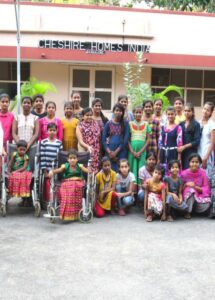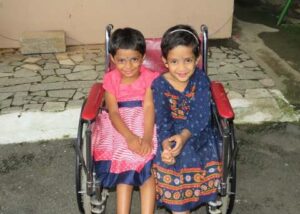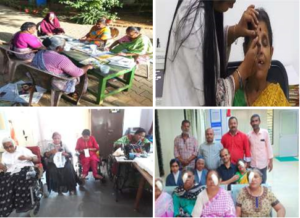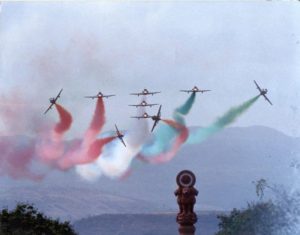
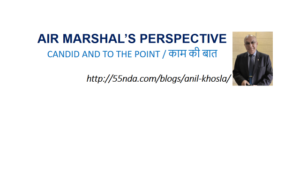

Topics Covered
| Leadership, Motivation and Management |
| Decision making |
| Mental toughness |
| Earning respect |
| Good leadership qualities and values |
| Science of Karma |
| Good working culture |
| Listening Skills |
| Be good feel good |
| Healthy working environment |
| importance of Tolerance |
| Lessons from Buddha |
| Difference between strength and courage |
| Lessons from rich and famous |
| Leadership lessons from Hollywood movies. |
| Shark in the tank theory of management |
| Car wheel theory of management |
| Aya Ram Gaya Ram syndrome – yes men. |
| Calculated Risks |
| Practical Leadership and management |
| Communication skills and body language |
| Lessons from Nanak |
| Being Responsible and Tolerant |
| Transferable Skills |
| Words of Wisdom |
|
China |
| China’s Brain differently wired |
| China’s strategic thought |
| China’s military modernisation |
| China’s Defence industry |
| China – Pakistan Collusion |
| China – Art of deception |
| China: Kill Pigs List |
| China: Social score System |
| China: Active Defence Policy |
| China’s Joint Strategic support force (JSSF) |
| China – Joint Strategic Support Force. |
| Dealing with the Dragon |
| China’s grey zone operations |
| China: Flavours of military Reform |
| China: Pillars of Military Reform |
| China new diplomacy – drawing red lines in sand. |
| China – demographic analysis. |
| China through US Prism |
| China in South China Sea |
| China’s Military – Civil Fusion |
| PLAAF Analysis Strengths and weaknesses |
| Book review on China Airpower |
| Dealing with Dragon |
| Knowing China Better: lie flat and let it rot |
| Knowing China Better social life and customs |
|
Geopolitics |
| China |
| Pakistan – National security Policy, Turmoil |
| Afghanistan |
| India’s foreign policy |
| India’s neighbourhood |
| Quad |
| Indo – Russian relations |
| State of Airpower assets in Afghanistan |
| Indo – US relations |
| Afghanistan: Taliban runover |
| US-China shadow boxing over Taiwan |
| China spoiling Bhutan’s GNH. |
| South China sea |
| Gini Index and implications. |
| Multilateralism: Flexible Security Cooperation. |
| China Pak Collusivity |
| Collective Security |
| Sri Lanka Economic crisis: lessons and opportunity |
| Ukraine Conflict |
| Djibouti: Tug of war between USA and China |
|
Air Power |
| Airpower in Grey zone operations |
| Airpower in no war no peace situation |
| Air Power & Non-Kinetic warfare |
| Air Power in Multi-Domain warfare |
| Airpower in HADR ops and aid to civil authorities |
| Drone Threat the big picture |
| Fighter aircraft classifications by generations |
| Emerging Technologies and Air Defence |
| Air Power in Modern Day Warfare |
| S-400 SAM AD System |
| Combat Aviation |
| Changing nature of warfare |
| Air Defence operations |
| Air power concepts: Command / control the air, air supremacy, Air superiority & Favourable air situation. |
|
Technology |
| Hypersonics and hypersonic weapons |
| Technology and airpower |
| Future Trajectory of AI |
| Artificial intelligence |
| Unmanned Platforms and Swarms, Loyal wingman concept |
| AI and Fake News |
| AI: Digital twins and Surrogate models |
|
Cyber Safety and Security |
| Cyber warfare |
| Digital addiction |
| Economic Cyber Frauds |
|
Space |
| Space operations |
| Space warfare and organisation in India |
| Space-based ISR |
|
Indian Air Force |
| Capability development |
| Tejas and AMCA project |
| IAF role in HADR and aid to civil and other agencies |
| Network-centric operations |
| PLAAF and IAF comparative analysis |
| IAF Modernisation |
| Balakot Operations |
| Rafale induction and capability enhancement |
| S-400 Induction |
| Fire Power Demo: Ex Vayu Shakti |
|
War and Warfare |
| Types of war |
| Decoys and deception |
| Afghanistan Air Assets |
| Future Wars |
| warfare |
| Grey Zone Warfare |
| Classification of warfare into generations (Russian Thoughts) |
| Domains of warfare |
| C4ISR |
| Military Balance in the region |
| Ukraine War: Air Power aspects, a case of dog and the bone, Air superiority aspects, decoding Ukraine war |
| Operational Logistics |
| Lesser known facts about 1971the War |
| Review of book on 1962 war |
| Review of book on 1965 war |
| India’s two-front challenge |
| Douhet theories |
| Duration of Conflict |
| Jasjit Singh on Airpower |
| Galwan stand off |
| Asymmetric Threat |
| Nuclear aspects revisited |
| Accelerating the paradigm Shift |
| National Security / Military Strategy |
| Urgent need for National Security Policy |
| Multilateralism: Relevance and changes |
| National Security Strategy |
|
Military |
| Military diplomacy |
| Military spending: trends and analysis. |
| Collusive threat and Deterrence: Air and Space Aspects |
| Integrated Capability Development. |
| Joint war game training systems |
| Fighter Pilot: Traits |
| Agni veer and Agnipath / Tour of duty / making best of the scheme |
| Andaman and Nicobar Command and Islands |
| Joint Operations and Joint man ship |
|
Higher Defence Organisation |
| Department of military affairs |
| Theaterisation |
| Air defence command |
| Civil-military fusion |
|
Flight Safety |
| Golden rules of safety |
| Importance of SOPs |
| A proactive approach to safety |
| Damage due to Bird Hits and Foreign Objects |
| Good safety Culture |
|
Defence Industry |
| Indigenous defence industry |
| HAL and DPSUs |
| Role of the private sector in defence production |
| Arms Transfer to Afghanistan |
| Defence Budget issues |
| Atmanirbharta |
| IAF and indigenisation |
| Indian Initiatives to promote self-reliance |
|
Stories |
| My tryst with HT-2 aircraft: The day god flew with me |
| The day I flew my dad’s car |
| Male Lake: Tale of two coursemates |
| Flying Tales |
Suggestions and value additions are most welcome
For regular updates, please register here
References and credits
To all the online sites and channels.
Disclaimer:
Information and data included in the blog are for educational & non-commercial purposes only and have been carefully adapted, excerpted, or edited from sources deemed reliable and accurate. All copyrighted material belongs to respective owners and is provided only for purposes of wider dissemination.


